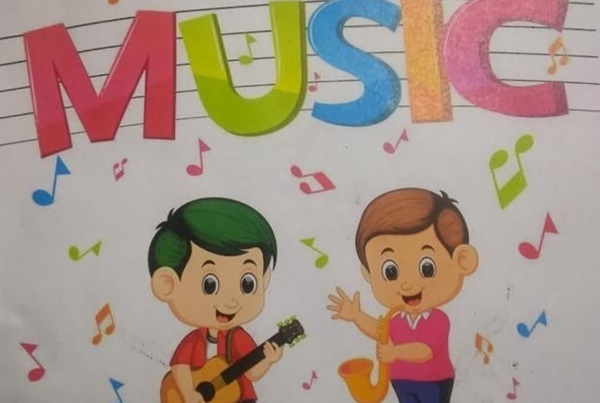8 Reasons Why Your Child Should Learn Music
“Music is a higher revelation than all wisdom and philosophy,” Composer and pianist Beethoven famously said. He was implying that of all human pursuits, music can impart great knowledge to the learner…
Could there be a better gift for your child than music lessons?
Though there’s no right or wrong age to start to learn music, parents would do well to begin early. That’s because a window of opportunity starts at birth and lasts until about nine years of age. During this time, children are the most receptive to music education, CelebnMusic247.com has learned.
But do the benefits of learning music stack up against the time spent in practice and the cost of lessons? Read on to find out!
1. Improves Patience
If your child is impatient, playing an instrument might help them build patience and understand the benefits of perseverance.
Like learning any new skill, cultivating a musical talent takes years of dedicated practice. Few people pick up a guitar or sit down at a piano and know what to do right away—if anyone at all.
The time your child spends perfecting their new skill will teach them that the things they want—in this case, being a good musician— only come with time and effort.
2. Music Appreciation
While you don’t need to understand how to play an instrument to appreciate music, taking music lessons will give your child a deeper insight into how tunes are constructed.
They’ll have a far greater understanding of different composers and musical styles. They’ll be able to critique music, determining whether it’s “good” or “bad.”
3. Lowers Stress Levels
We often think being a child is easy. But around 30 percent of American school children experience low-level stress, as one recent survey discovered.
Playing an instrument or even just listening to music can help people—including children—feel calmer. But what types of music are best?
Studies show that classical and ambient music affects our moods most. They can:
• Lower our heart rate
• Release endorphins
• Offer a distraction
So if you have a stressed-out kid, sign them up for music lessons immediately!
4. Powerful Brains
Whether Miss Six is begging you for a violin from Teds-list.com or you have a noisy drummer for a teen, you can be sure the instruments are worth the investment. That’s because the research shows playing music can make your kids smarter.
They’ll Remember More
On a practical level, playing music requires you to learn a lot of new skills. You have to remember which cords to play or notes to hit. And you need to practically learn a new language when it comes to understanding sheet music!
But the effects of learning music go even deeper where memory is concerned. For example, a 2020 study of 10 to 13-year-olds discovered that attention span and working memory, two core executive functions, were far more advanced in those who played music compared with those who didn’t.
Their Brain Size Increases
Learning to play an instrument can cause physical changes in the volume of our brain. Way back in 2003, scientists discovered that professional musicians had more gray matter than their non-musical counterparts.
Since gray matter is essential for information processing, the more you have of it, the quicker you can grasp new concepts and work through problems.
They’ll Spell Better
If your child’s struggling with spelling or falling behind their peers in their reading level, consider enrolling them in music classes.
A 2021 study found that tapping into music was an early predictor of high literacy rates in children. Children who associate movement with a beat are typically better at speaking, reading, and writing.
5. Forming Friendships
Children who struggle to make friends easily might find learning to play music in a group setting helps them better connect with peers.
They can bond over their passion for a specific type of music or particular instrument. That they can talk about their shared interest may take away the pressure some kids experience in more casual social settings.
They might even make friendships that last far beyond a single term of lessons.
6. Builds Confidence
Children spend much of their time exploring their world in an attempt to find out who they are and what they like. If a child has a strong sense of self-expression, they will have confidence in their abilities and build better relationships.
Every time they master a new piece of music, your child will get a boost in self-esteem and learn more about their abilities—their strengths and weaknesses. Many music schools ask students to perform on stage, giving them another opportunity to build confidence.
7. More Creative
A creative child has better emotional intelligence and can think outside the box. In fact, research shows that highly creative children pursue higher education more often and earn more money than their less imaginative peers.
Learning how to express emotion through music is a form of creativity—even if your child is simply practicing the pieces they’ve been taught.
8. It’s Fun!
One of the most important benefits of playing music for a child is that it’s fun! Your child gets to spend time with their friends, bonding over a shared activity. They challenge their brain, boosting endorphins.
If your kid isn’t having fun, it’s time to find them a new instrument!
Learn Music Early for a Better Adulthood
Children are most receptive to learning new skills when they’re young. This means it’s essential to get your child into music lessons early.
Giving your child the opportunity to learn music will help them think creatively, improve their memory, and build confidence. If your kid struggles to make friends in school, this can also offer them another place to find friends.
Of course, you must ensure they are enjoying the instrument they’re learning, or it may backfire on you.
For more advice on music education and general childhood learning and development, browse the other informative articles on our website.








